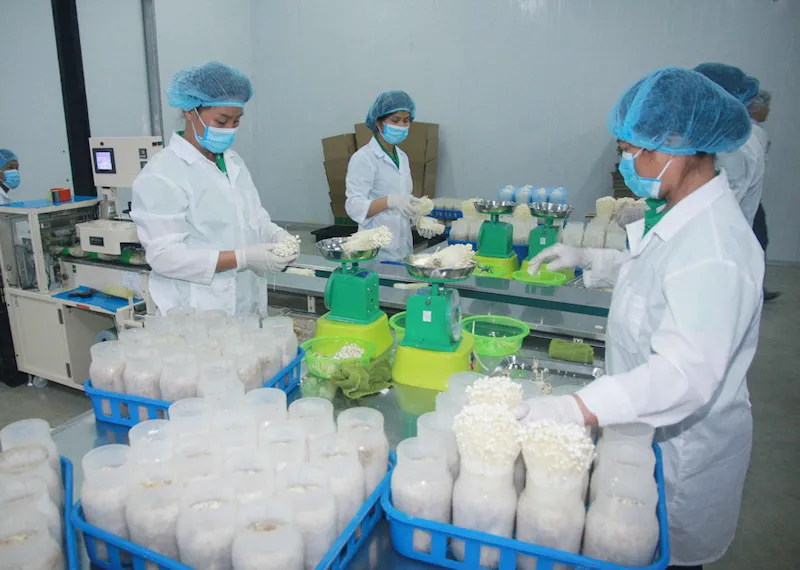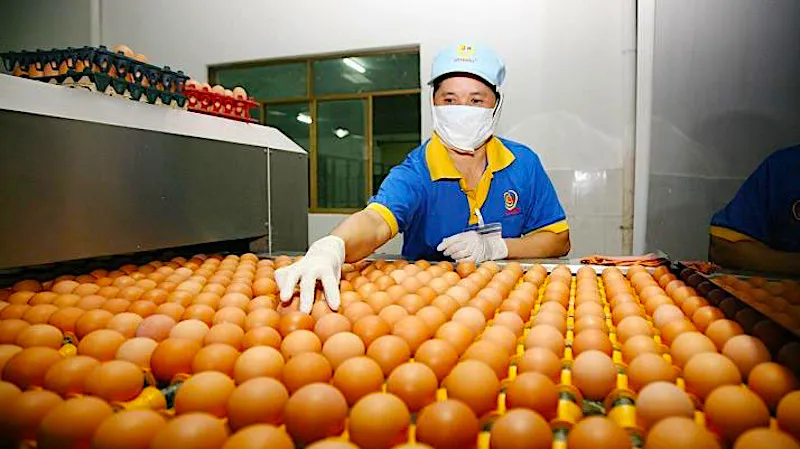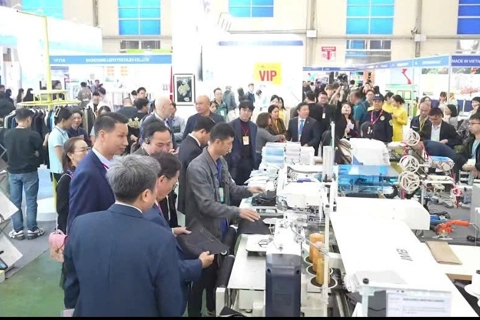Hanoi removes barriers to investment in high-tech agriculture
Hanoi’s farming sector has proposed that the city adjust the mechanisms and policies to promote marketing and branding of high-tech agricultural products.
Hanoi is deploying concerted solutions to remove barriers and attract resources to speed up the development of high-tech agriculture as this is the trend of sustainable production.
The project of organic enoki mushroom cultivation is applying the Japanese technology in My Duc district. Photo: Hanoimoi |
According to the Hanoi Department of Agriculture and Rural Development, the application of high-tech in agricultural production is still carried out at small scale, although some high-tech agricultural models have gained remarkable results.
Current barriers
In Hanoi, there is only one project of organic enoki mushroom cultivation applying the Japanese technology in My Duc district recognized by the Ministry of Agriculture and Rural Development as high-tech agricultural model.
Director of the Hanoi Department of Agriculture and Rural Development Chu Phu My pointed out another shortcoming hindering Hanoi’s high-tech farming from thriving, which is the fact that local investors in high-tech farming have to clear land like developers of housing and road projects.
Meanwhile, the cost of land clearance and initial infrastructure investment for farming projects in Hanoi is much higher than in neighboring provinces and cities. In addition, farmers prefer to leave their land barren instead of leasing it for the businesses to develop high-tech farming.
Investment in high-tech agriculture is facing with other challenges such as poor transport infrastructure, irrigation network, the development of environmental treatment systems, lack of synergy in agricultural production areas and poorly qualified human resources.
High-tech agricultural projects, in order to enjoy preferential interest rate, are required to be approved by competent authorities and not to receive support from other policies.
Mechanisms and policies need refining
The city needs financial support to build a typical model to for farmers citywide to visit and learn. Photo: Ngoc Anh/Kinh te & Do thi |
In order to promote the development of high-tech agriculture, the city’s agriculture sector has called for investment in 11 projects in the 2019 - 2025 period with a total amount of about VND6.7 trillion (US$288.5 million) in the districts of Ba Vi, Phuc Tho and Dan Phuong.
High-tech agriculture development must take into account natural advantages, investment capacity and the balance of supply and demand. The localities also need to recover fallow land to re-allocate to businesses investing in this field.
For functional agencies, it is necessary to review, supplement and perfect mechanisms and policies to encourage investment in high-tech agriculture.
Investment policies should be combined and integrated with the programs and objectives of the government, the Ministries of Science and Technology, Agriculture and Rural Development, and Hanoi should create sufficient resources for developing high-tech agriculture in the direction of connecting the state – scientists – businesses – farmers, Chu Phu My from the Hanoi Department of Agriculture and Rural Development said.
At the same time, he suggested mechanism to mobilize private resources in the form of public – private partnership in infrastructure investment.
In addition, the city needs financial support to build a typical model for farmers citywide to visit and learn in order to improve the efficiency of the training process, thereby improving the skills of the labor force directly involved in farming.
The city's farming sector has proposed that the city needs to adjust the mechanisms and policies to promote marketing and branding of high-tech agricultural products as well as piloting some types of markets for specific products to reach a broader scope of consumers.












